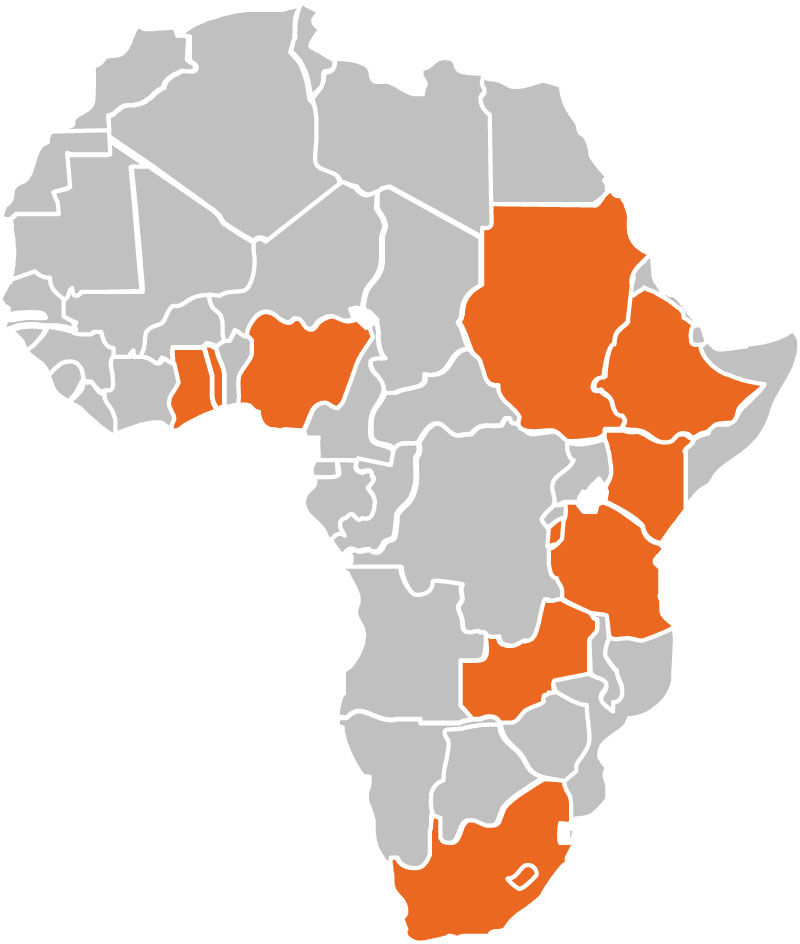
History
Teacher Education in Sub-Saharan Africa, TESSA, was started in 2005 by a team from The Open University, led by Professor Bob Moon, with funding the Allan and Nesta Ferguson Foundation, and later from the William and Flora Hewlett Foundation.
A consortium was formed with 14 Higher Education institutions from nine African countries, and four international organisations. Prof Jophus Anamuah-Mensah from Ghana, became the Executive Chair

For two years, colleagues from these institutions worked together to develop a bank of resources to support student learning and teacher learning. Resources were developed in English and translated into French Kiswahili and Arabic. Colleagues formed local teams and versioned the resources for use in their own country. The La Direction des Formations à Lomé in Togo also joined the consortium. By 2010 the TESSA website was fully operational with ten different versions of the resources, published as OER. Materials were also made available in print and on CDs, as required.
TESSA founding partners
The institutions involved in founding the TESSA consortium were:
The International organisations were:
African Virtual University (AVU)
The Commonwealth of Learning (CoL)
South African Institute of Distance Education (SAIDE)
In the early years the consortium met for an annual conference. In 2010 TESSA was reconceptualised as a network, welcoming new partners and new users, as organisations take ownership of TESSA OER to support their work. We take the opportunity to meet at key events concerned with teacher education in Africa, for example the Distance Education for Teachers in Africa Conference (DETA). In 2015, there were 25 presentations about or related to TESSA (link to report) at DETA in Mauritius.
Widening participation
From 2010 a series of individually funded projects have worked on:
- widening participation (to include Colleges of Education, Government agencies and Civic society organisations);
- embedding TESSA in institutions (including universities, colleges and schools);
- improving access through the use of tablets, mobile phones and a re-developed web-site;
- developing new materials (including TESSA Secondary Science, Teaching Practice Supervisors Toolkit and Inclusive Education Toolkit).
As a result, TESSA partners are working at every level in education systems across sub-Saharan Africa, on small-scale projects (involving individual schools) and large scale projects (involving national providers of teacher education).
Details of current partners can be found here. This work has been maintained by the generosity of multiple funders. Details can be found here.
Current TESSA strategy
As we move into TESSA’s second decade, funding from the Ferguson Foundation (2016 –19), is being used to ensure the sustainability of TESSA through strengthening the network, involving new partners, and enabling institutions and Governments to take ownership of the OER and the ideas they contain. There are four strategic objectives for the next three years:
- To improve access to TESSA resources
- To build the capacity of teacher educators through the provision of a MOOC
- To embed TESSA in teacher education institutions in selected countries
- To ensure sustainability through the strengthening of the network and the development of new collaborations and partnerships.
A programme of activities (including monitoring and evaluation) has been developed to meet these objectives. Our progress can be followed via the TESSA newsletters.

